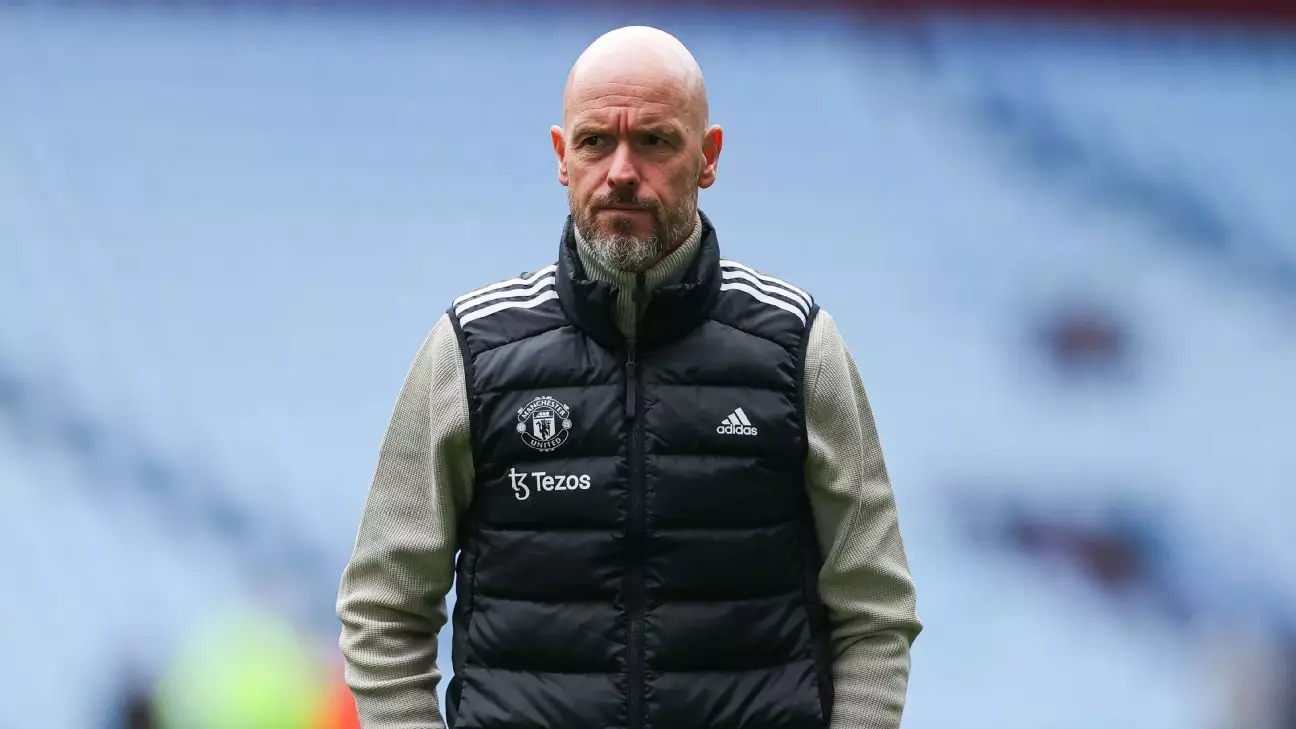As Manchester United grapples with an alarming dip in performance, Erik ten Hag finds himself at a crossroads. The club’s dismal 14th position in the Premier League table, compounded by a streak of five consecutive matches without a victory, has raised serious questions about the Dutch manager’s future. While many observers dissect the implications of recent results, the situation unveils a complex interplay of internal dynamics and strategic planning in a club known for its rich history and ambitious aspirations.
The club’s executive committee, featuring co-owners Sir Jim Ratcliffe and Joel Glazer, recently convened for a lengthy six-hour discussion. Although reports and rumors have circulated regarding the future of Ten Hag, insiders suggest that the meeting was predominantly routine, aimed at assessing early-season outcomes rather than embroiled in direct discussions about immediate managerial changes. The presence of key figures from various departments, including CEO Omar Berrada and technical director Jason Wilcox, reflects a holistic approach to addressing the club’s challenges, reinforcing the notion that this transition phase is not solely about Ten Hag but possibly broader structural issues within the organization.
Despite the external pressures and internal doubts, Ten Hag is reportedly committed to his role, demonstrating a resilient disposition. Describing his tenure at Old Trafford as a “long-term project,” he has held discussions with the club’s leadership at Villa Park, receiving reassurances regarding his position. Amid the chaos, his determination to prioritize training and preparation for the upcoming match against Brentford illustrates a professional commitment that may provide a sense of stability in tumultuous times.
The disappointing season start, characterized by a mere eight points from their first seven games, has even seen Manchester United post some of their worst performances, including a 3-0 home thrashing against their fierce rivals Liverpool and Tottenham. Such results magnify the scrutiny on Ten Hag, yet they also serve as a call to arms for the squad to rally and rediscover their competitive spirit.
The coming weeks are critical for Ten Hag and his squad, as they face a daunting schedule with significant matches against the likes of West Ham, Chelsea, and Leicester City in the Premier League, along with the Europa League clashes against Fenerbahce and PAOK. These fixtures not only represent opportunities to regain form but also bear implications for Ten Hag’s future at the helm. A series of poor results could heighten pressure for change, while improved performances may restore confidence in the project he’s leading.
The next few matches will serve as a litmus test for Erik ten Hag’s managerial capabilities and the resilience of Manchester United. The juxtaposition of pressure and hope presents a compelling narrative in football, wherein a manager’s fate often hinges on moments that unfold on the pitch.

Leave a Reply